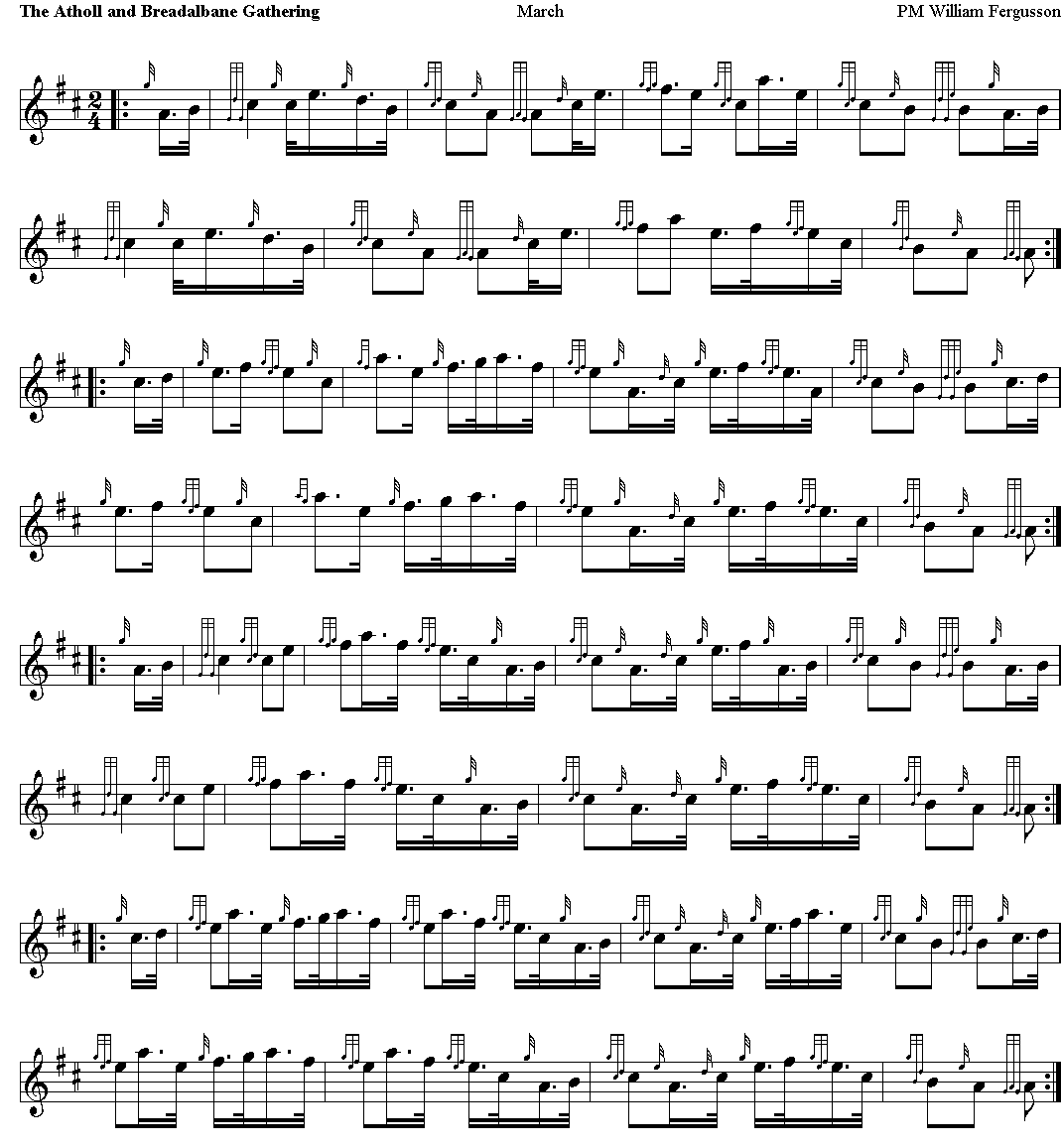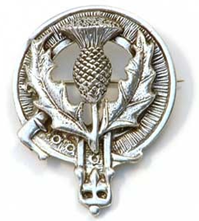|
Not to be
confused with the Atholl Gathering (and
its associated Highland Games at Blair
Castle), the Atholl and Breadalbane
Highland Games take place in early
August, on Aberfeldy's Victoria Park.
Breadalbane
(Scottish Gaelic: Brŕghad Albainn, the
upper part of Alba) is a region of the
southern/central Scottish Highlands in
Atholl.
The tune was
composed by Pipe Major William Fergusson
(1885-1945).
William Fergusson (shown above) was born
in Arbroath in 1885 and died in Glasgow
in 1949. Composer of such march
standards as “The Australian Ladies,”
“The Atholl and Breadalbane Gathering,”
and “Kintara to El Arish,” as well as
the strathspey “Dornie Ferry,” he
learned piping in the 102nd Boys Brigade
under ‘P/M Hutchins,’ and was then
taught by 7th Battalion H.L.I. Pipe
Major Farquhar MacRae, a pupil of Sandy
Cameron. He would succeed MacRae as pipe
major in 1914, though before this he was
divisional pipe major of the 52nd
Lowland Division. Most of his great
tunes were written during the war
years.
After the war he
became pipe major of the City of
Glasgow Pipe Band, which became the
legendary Clan MacRae Pipe Band. In
this position he became one of the
first of the modern era’s great
prize-winning pipe majors, leading
the Clan MacRae to World
Championships in 1921, 1922, 1923
and 1925 and unrivalled success
throughout the 1920s. The band was a
prize-winning machine, and on the
day of one of their Cowal wins, Sir
Harry Lauder was heard to exclaim,
“You would actually think it was one
set of pipes and a drum that was
playing!"
Fergusson left the band in 1929 on
the eve of his first tour of Canada.
Hamish MacColl succeeded him as
piper major. MacColl had been
tutored by Fergusson and had been a
member of the band since 1907.
Fergusson would tour Canada again in
1931. In 1940 he published
Fergusson’s Bagpipe Melodies,
which contained tunes and
arrangements by himself and others.
Known by many as “Fergie,” he was an
enthusiastic member of the Scottish
Pipers’ Association during his
latter years.
When he died in 1949 his fame was
such that it warranted an
appreciation in the Oban Times
written by the great Robert
Reid.

|



